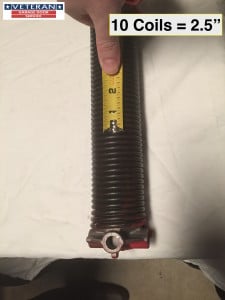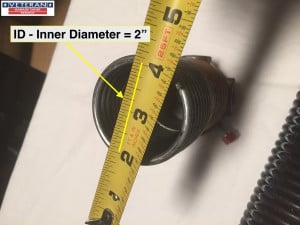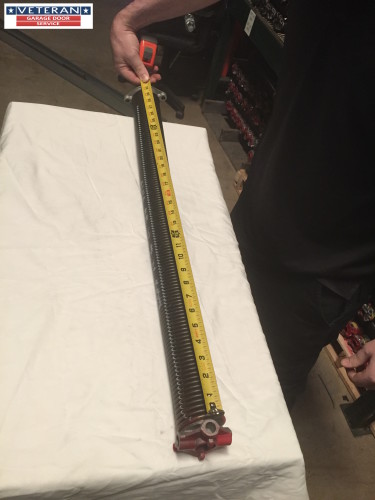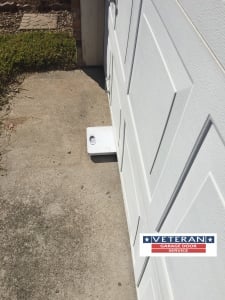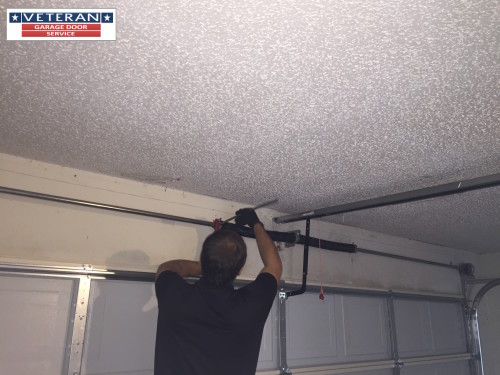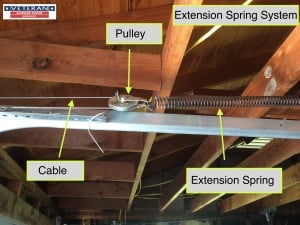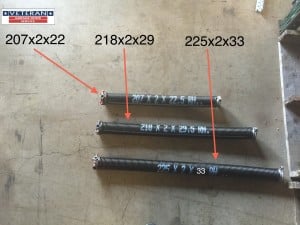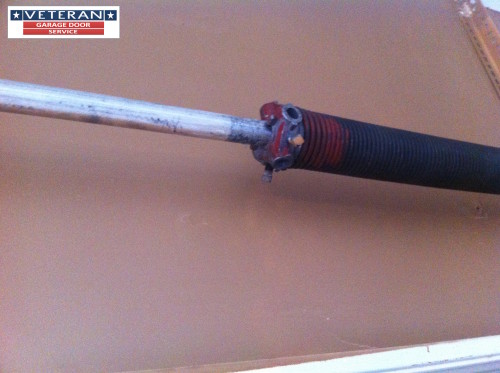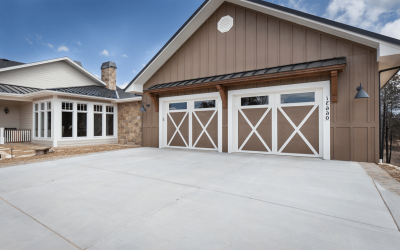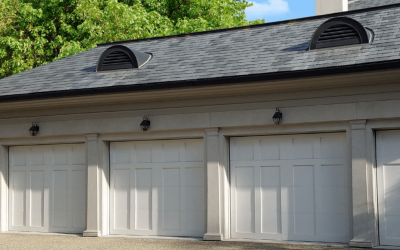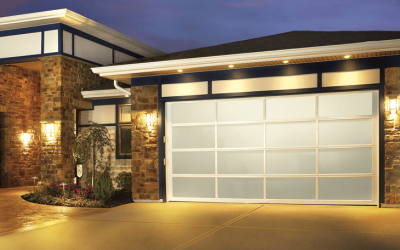Measuring torsion springs is not a difficult task, but requires accurate measurements. The springs wire
size is the first component of the spring measurement, followed by the springs inner diameter and
finally the overall length of the spring.
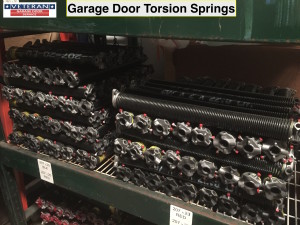
The first measurement you will need to get is the wire size. To figure the wire size you will need to
measure 10 coils. Convert the measurement to decimals, if it measure 2 1/2 inches that would be 2.50.
Now move the decimal one place to the left giving you a wire size of .250.
The next measurement is the inner diameter of the spring. This is simple but again be accurate as even
1/4 inch can make a difference in the springs overall lifting capacity. For this example let’s assume the
inner diameter measures 2 inches.
Finally measure the overall length of the spring coils. Measure only the coils and not the cones on each
end. For this example let’s assume the coils measure 28 inches.
In this example your spring size is 250x2x28.
This only tells you the size of the spring(s) that were used, it does not mean the correct size springs were
used when the door was installed. In many cases we find doors have the wrong size spring(s) installed
preventing the door from functioning properly and leading to premature spring failure.
To determine proper spring size for your garage door you need to determine the weight of the garage
door and all of its components. The most accurate way to find the weight of the door is to release the
tension on all of the garage door springs and using an analog scale physically weigh the door while it is in
the down/closed position. Removing the tension from springs is dangerous and should only be done by
trained garage door technicians. This is true for garage doors with torsion springs an extension springs.
once you know the weight of the door you can determine what springs you will need. IPPT is a formula
used to convert the weight of the garage door to the spring size needed for replacement.
Torsion springs , when installed, must also be wound the proper number of times. If the spring is not
wound enough the door will be heavy and difficult to open. If the spring is over wound it will be too hot.
Either condition will cause damage to other components of the garage door system and can lead to
premature failure of the spring(s). If the wrong size springs are used, this can cause the same problems.
If the spring is too small, then extra winds will be needed, this can lead to premature failure as well. If
you use a spring that is too small and compensate by adding winds to the spring you can also create a
situation where the garage door is easy to open, but very difficult to close. This causes your garage door
opener to have to work harder to close the door and can lead to premature garage door opener failure.
If you use too large of a spring then it can create a situation where the spring is under wound. This
condition also leads to premature failure as the garage door opener has to work extra hard opening and
or closing the garage door. Using the proper spring(s) for your garage door will result in a perfectly
balanced garage door and insure a longer life of your garage door springs and other components in your
garage door system.
Extension springs can be purchased at many home improvement store like Home Depot and Lowes,
however torsion springs are not available at those type stores and would have to be purchased online.
Most garage door companies will not sale torsion springs the do-it-yourselfers. It is important to
remember that garage door springs, extension or torsion, are very dangerous and can cause serious
property damage and personal injury including death and should only be installed and adjusted by
trained garage door technicians.
Garage door torsion springs come in many wire sizes, inner diameter sizes and overall lengths. The size
spring(s) your garage door will need is based on the weight of the garage door. Other factors that can
affect your spring choice is based on the spring(s) life cycles. A spring life cycle is one open and close of
the garage door. In most residential applications the ratings are 10,000 life cycles, 20,000 life cycles, and
30,000 life cycles. The life cycle rating of garage door springs does not take external conditions into
consideration. These external conditions could be rust, dirt and dust, and metal pitting just to list the
most common conditions that cause premature spring failure. The number of life cycles the spring is
rated for is determined by the manufacturer. Generally the larger gauge of wire used to make the spring
coils, the more life cycles the spring will be rated for. The inner coil diameter and overall spring length
will determine the lifting capacity of the spring.
To figure your average for garage door life cycles, find the average number of times you open and close
your garage door each day. For example we will estimate that the garage door is opened and closed on
average 3 times per day. So multiply 3×365=1,095. On average you open and close your garage door
1,095 times per year. Now divide the number of life cycles your spring is rated for by 1,095. Example
your spring is rated 20,000 life cycles, 20,000 divided by 1,095= 18.26. In this example your spring(s)
should last approximately 18 years, remember other factors can decrease the actual number of life
cycles you will actually get, this is only an average in a perfect controlled environment.
You should also consider what type of torsion springs you want to use. You could choose standard oil
tempered springs, galvanized springs or coated springs. Oil tempered springs are dipped in hot oil during
the manufacturing process. Galvanized springs are dipped in hot zinc to coat them during the
manufacturing process and coated springs are sprayed with a paint like substance that then through an
electro-process the substance bonds to the spring. In my opinion oil tempered are the best choice as the
galvanizing process weakens the spring and with coated springs there is a risk that the coating was not
applied fully or evenly leaving sections uncoated. These uncoated areas allow moisture to penetrate the
metal causing rust to develop. Rust will weaken the spring causing premature failure.
There are many things to be considered when replacing your garage door springs. Talk to a local service
technician to determine what springs best meet your needs.
It is recommended that you have a trained garage door technician replace your torsion springs for you.
Garage door torsion springs, as stated earlier, are very dangerous and require special tools and training
to install safely and properly.
Be cautious of garage door torsion springs bought online, even if you have measured the old springs
correctly and properly weighed your door, the torsion springs you by online may be of inferior quality
and could even be incorrectly marked for size. Springs must also be installed on the proper side of the
center bearing bracket. When springs are manufactured they are wound either left hand wound or right
hand wound and will not function properly if installed on the wrong side.
Reputable garage door service companies will properly install springs for you and provide a warranty on
the springs based on the life cycles of the springs you choose to use on your garage door.




